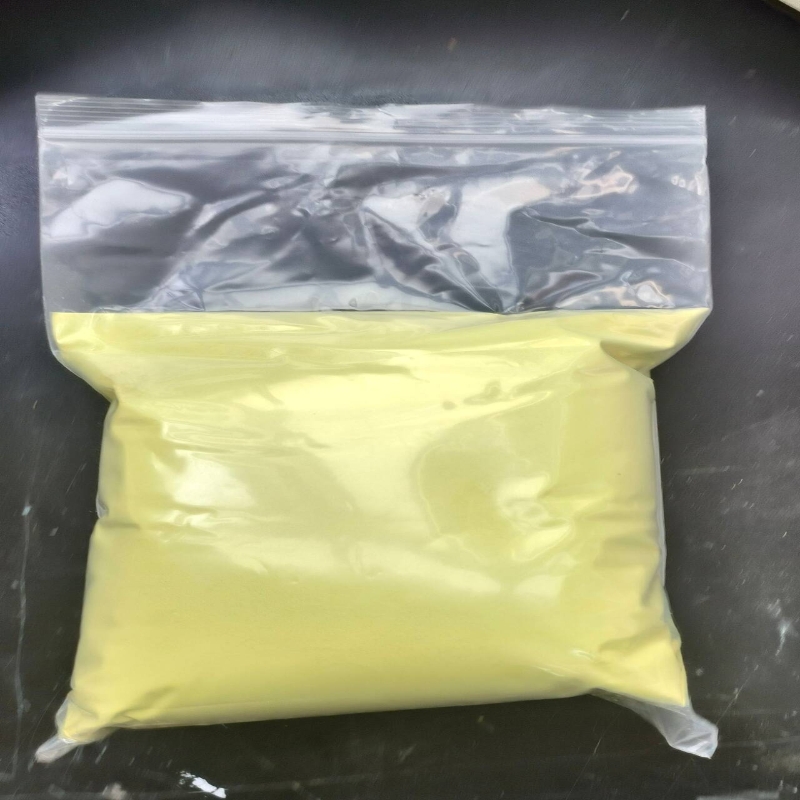Application of Novartis antisense RNA therapy TQJ230 in China
-
Last Update: 2020-01-10
-
Source: Internet
-
Author: User
Search more information of high quality chemicals, good prices and reliable suppliers, visit
www.echemi.com
Original: Xiangdong On January 8, CDE official website showed that the antisense RNA therapy tqj230 of Novartis was applied for clinical application in China Tqj230 (aka akceo-apo (a) - LRX) is a kind of antisense RNA therapy, which is mainly aimed at patients with cardiovascular disease accompanied by high lipoprotein (a) Tqj230 was first developed by Ionis pharmaceuticals and its subsidiary akcea therapeutics Novartis entered into an exclusive option agreement with akcea and Ionis in January 2017 for two drugs under development to reduce cardiovascular risk in patients with high levels of lipoprotein (a) One of them is tqj230, the other is akcea-apociii-lrx Shortly after the completion of tqj230 phase II clinical (nct03070782) in December 2018, Novartis exercised its right of choice for tqj230 in February 2019 and obtained the relevant rights for development and commercialization of tqj230 According to the strategic cooperation agreement between Akcea and Novartis, Akcea received a license fee of US $150 million, which will be shared equally with Ionis At present, the phase III clinical study (nct04023552) is in progress and is still in the recruitment state Figure 2 Mechanism of tqj230 Lipoproteins (a) are mainly synthesized in the liver, and its continuous increase is closely related to cardiovascular diseases such as angina pectoris, myocardial infarction and cerebral hemorrhage It is an independent genetic risk factor leading to cerebral apoplexy and coronary heart disease, and it can not be treated by changing lifestyle (including diet or exercise) or using existing cholesterol lowering therapy Lipoprotein (a) is composed of low-density lipoprotein (LDL) like particles and apolipoprotein (a), which means that if the expression level of apolipoprotein (a) is reduced, the level of lipoprotein (a) can be reduced, thus reducing the risk of cardiovascular disease The design concept of tqj230 is based on this theory Tqj230 is an antisense oligonucleotide (ASO) covalently coupled with N-acetyl galactosamine (GalNAc) However, GalNAc is the target ligand of hepatocyte specific asialoglycoprotein receptor (ASGPR), which has a high affinity and rapid internalization ability with the cells on the liver surface With this ability, tqj230 can specifically bind membrane proteins into the cells, target the liver apolipoprotein (a) mRNA, weaken the expression of liver apolipoprotein (a), and then reduce the expression of apolipoprotein (a) To reduce the risk of cardiovascular disease Figure 3 Tqj230 phase II clinical study On January 2, 2020, the New England Journal of Medicine (NEJM) published detailed results of tqj230 phase II clinical Tqj230 phase II clinical study is a randomized, double-blind, placebo-controlled dose range trial 286 patients with confirmed cardiovascular disease and high-level lipoprotein (a) (the baseline average level is 90 mg / dl, three times higher than the normal upper limit) were enrolled, which is the largest study ever conducted for high-level lipoprotein (a) population The participants were divided into five groups with different doses and placebo control group The results showed that the administration of tqj230 resulted in a dose-dependent decrease in the level of lipoprotein (a), which was 35% lower than that of baseline, 56% lower than that of 40 mg every 4 weeks, 58% lower than that of 20 mg every 2 weeks, 72% lower than that of 60 mg every 4 weeks, 80% lower than that of placebo It is worth mentioning that there is no significant difference between tqj230 and placebo in safety data including platelet count, liver and kidney indicators or influenza like symptoms The most common adverse event is injection site reaction Compared with placebo, tqj230 showed excellent lipid-lowering protein (a) characteristics and good safety Based on the results of this study, Novartis has advanced tqj230 to phase III clinical stage Figure 4 Tqj230 phase II clinical main study endpoints It is estimated that there are more than 8 million patients suffering from cardiovascular disease with high levels of lipoprotein (a) However, there is no approved treatment for the increase of lipoprotein (a) level At present, in addition to antisense RNA therapy, there are PCSK9 inhibitors and the separation of lipoprotein (a) from blood Pooled analysis of four phase II clinical studies (nct01380730, nct01375777, nct01375764 and nct01161082) and pooled analysis of three phase II clinical studies (nct01266876, nct01288469 and nct01288443) of PCSK9 inhibitor evolumab (AMG 145) showed that PCSK9 inhibitor could significantly reduce the level of lipoprotein (a) by 24.5% to 30% At present, the mechanism of this process is not clear, because PCSK9 inhibitors, like statins, work through LDL receptor pathway In addition, studies have shown that the separation of lipoproteins (a) from blood can significantly reduce lipoproteins (a) by 60% to 70% From the results of tqj230 phase II clinical, tqj230 shows excellent effectiveness and safety, which is believed to have good performance in the follow-up phase III clinical If approved, it will become the first in class therapy for the specific targeting of increased LP (a) Reference source: [1] CDE official website [2] Akcea therapeutics official website [3] Macchia et al A new dawn for managing dyslipidemias: The era of rna-based therapies Pharmacological Research 2019 [4] Ionis Pharmaceuticals (IONS) Investor Presentation - Slideshow
This article is an English version of an article which is originally in the Chinese language on echemi.com and is provided for information purposes only.
This website makes no representation or warranty of any kind, either expressed or implied, as to the accuracy, completeness ownership or reliability of
the article or any translations thereof. If you have any concerns or complaints relating to the article, please send an email, providing a detailed
description of the concern or complaint, to
service@echemi.com. A staff member will contact you within 5 working days. Once verified, infringing content
will be removed immediately.




![2-(Hydroxymethyl)benzo[b]thiophene](https://file.echemi.com/fileManage/upload/cas/593/e79a972f-b55d-4dc1-9113-841c417e0a89.png)


